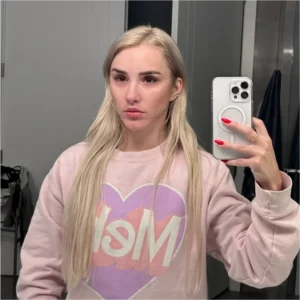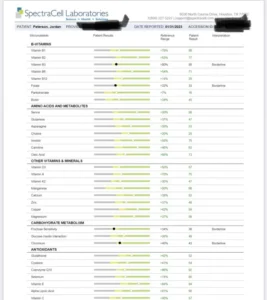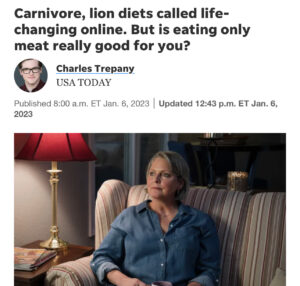Looking back on how I did my elimination diet, I can see a number of things I did wrong. This is a post describing how I would do an elimination diet now (pretty much what I’m doing now anyway).
This might seem extremely strict… and it is. Not much I can say about that except that it’s only a month, and you might be able to reintroduce most things back in right away. This is the diet that helped my dad, and I. I tried to do a less restrictive one with dad, but it wasn’t good enough.
I would do this if you are suffering from a number of the following symptoms:
– extreme fatigue (you nap every day)
– insomnia
– itchy skin
– skin problems (acne, rashes, etc)
– severe depression and/or anxiety – or other mental problems (OCD, schizophrenia, etc.)
– joint pain
– nerve pain
– muscle pain
– mouth ulcers
– bleeding gums
– digestive distress (stomach pain, bloating, constipation, diarrhea)
– GERD’s
– you’re overweight or you seem to gain weight easily and quickly in a bad way
– autoimmune disease/s
– you’re taking prescription medication long term (e.g. proton pump inhibitors)
– you’ve been prescribed antibiotics multiple times
– anything else I haven’t mentioned that really bothers you
or if you feel like you could feel better.
This beginning part will take you about a month to feel better. It took me 24 days. Keep on this strict diet for a month and then SLOWLY reintroduce foods to see how you feel (read more posts to see how to reintroduce foods).
What to be prepared for (warnings):
- you won’t eat out for at least month (you can’t cheat, and eating out takes practice when you’re restricted)
- if you’re not used to cooking, it’s going to be some work at the beginning but I have very simple recipes that take no time. (e.g. take chicken out of package, put in oven at 400 for 50 minutes, eat)
- your friends might think you’re weird
- people might be angry. (people are very attached to their foods. Even if someone else is changing their diet)
- buying meat and vegetables can seem more expensive but remember you’re not eating out
- you might (probably will) experience some withdrawal symptoms
- you might feel worse for the first 1-1.5 weeks (I didn’t, but some people do)
- some people who cut out dairy for even just a month end up becoming lactose intolerant. My strong belief is that dairy is terrible for you, and if you end up lactose intolerant, good, but that is something that might happen.
- If you suffer from anxiety and/or depression, and you reintroduce something that was giving you trouble, you might experience a significantly worse reaction than you have experienced before. By reaction, I mean a bout of brain fog and depression that is more intense than what you’ve been experiencing. I don’t know why this happens but it does sometimes. It did to me, my father and a couple of my friends. This is something to seriously think about. It’s avoidable, but it can be scary if you don’t realize what’s going on. These are IgG reactions and I’ll go into more detail about them later.
- If you mess up and eat something you’re not supposed to, you have to start again. You can’t do this for a week, and go out for a slice of pizza and then continue onto day 8 of the diet. After the slice of pizza you are at day 1 again.
- Chances are you will feel better by week 3. This is the best thing I’ve ever done. Cutting out foods was the best thing my family has done. If done properly, this can improve your life indescribably. I would recommend this to anyone but you have to be careful.
Step 1: If you can afford it, or even if you can’t really afford it, find a naturopath (or if you’re lucky a doctor) and do an IgG food sensitivity test. Try to get the one that tests for over 200 foods. This will set you back approx. 450$ in Canada but it’s worth it. This is most important for people with mental problems that they’re trying to control (but still important for everyone). This will save you a lot of pain and suffering down the road. I know it’s expensive but if you can do it, do it. Seriously. Skip your skepticism (unlike what I did), and do it. It’s also a test that is much more accurate when everything is still in your diet. That’s why it’s the first step.
Step 2: If you have your IgG results, avoid everything you score above 22 on. Some of them will show up as green and supposedly okay, but anything above 22 (I believe) is a no-no. Even if they’re on my list of okay foods, avoid them, everyone’s a bit different. I’d be surprised if they showed up on the foods that I’m okay with though. Most people with IgG responses have similar responses (showing that some foods aren’t good for anyone).
If you’re not going to do the IgG test (or if you have your results) get started on grocery shopping!
Step 3: Cooking – I’ll add some recipes tomorrow or tonight that are super easy. Literally so easy that someone who has never cooked couldn’t mess it up. They also take no time. They’ll be for 2 people (I would recommend cooking this much even if you’re alone so you don’t have to cook so often), or double them for 4 people. Always make more food than you think you need. If you’re used to snacking, this will help with the anxiety of feeling like you don’t have enough food. Here’s a sample menu for a week (coming soon – this weekend):
Step 4: Follow for a month. Do not cheat. Feel insanely improved by week 3-4.
Step 5: Very carefully start to reintroduce foods.






Hello,
Will having a cheat day completely negate the effects of this diet if I’m just overweight and in need of more energy and mental clarity?
It’s hard to say. For weight, probably not (depends how often you cheat right?), for energy and mental clarity, it’s better not to cheat. It takes a couple of weeks for the cravings to go away, but then they’re gone. That being said, it’s better to do this most of the time and cheat than to not do it at all.
My normal diet has always been pretty good, but when I started a new job and began gaining weight I decided to change some things. I didn’t have to worry about sugar or carbs as I have always lived on a very low carb diet and as little sugar as possible. I’d never add it to anything and always check what I was buying. The first step I did was eliminate dairy. I had read lots of journals from doctors and nutritionists suggesting that it’s not really needed once a child has grown teeth.
For me, that was a mistake. I did not feel any different but I slowly started to track that I was putting on more weight. I increased my exercise and walks, but it was still going up. Then one day I had scrapped my shin against a stone retaining wall at a park. I had noticed that the scrape only got worse as the days progressed. I had disinfected the wound and applied bandages and polysporin but it was not healing or even scabbing up. I went to my doctor who speculated that I may have developed diabetes or had a problem with my red blood cell activity. He took some blood and a few days later my results came back normal. Needless to say both he and I were very baffled.
At this point I had not bridged the idea of my weight gain and cuts and scrapes not healing to my lack of dairy intake. I thought I had caught a virus, or developed an illness unrelated or suffering from some sort of psychosomatic condition. It wasn’t until a few more visits with my doctor and constant exchange of questions and tests that I was led to saying that I had given up dairy a few months earlier. He suggested I drink a glass of milk as many other options have been taken without any change. I had a glass of milk a day and after six days my shin wound scabbed over. Some other cuts I had on my hand and arms also healed up nicely and quickly. After about a month I had lost 20 pounds and my wounds healed. However there is some permanent bruising where the scars were. Spending more hours outdoors with sunlight bathing my skin has helped a bit. Any other cuts I have had healed up quickly leaving no bruises like the ones I suffered while on my dairy free diet.
I like this blog as it gives some good suggestions with regards to controlling ones diet. For me, eliminating dairy would be a health risk. It is clearly providing some pivotal resource my body needs to repair damage that I’m not getting from fruits, vegetables, meats, fish and nuts. I’ve since played around with diets from the aforementioned and have found a new harmony for my body that allows me to eat a large variety of foods at my own discretion without any negative repercussions.
I will not advocate that dairy is a saving food. I will only strongly suggest that you pay close attention to your body as you change your diet and take notes as how it responds.
Hi, I’m wondering about whether you’ve figured out the diet stuff for your child yet. My kids are older, but still developing, puberty is fun :), and I’m wondering how I should proceed with them. My son is huge, 6’3″ and broad shouldered, I have him in martial arts (Judo), and he is really starting to become interested in his dietary health, which is great, but he’s only fifteen and so I worry about his growth and development still. I’m not very satisfied with waiting until he is 18 or 21 to develop healthy eating habits, but I’m also worried about the potential deficits an incorrect diet could cause. Any info you’ve found on this would be helpful. I understand that it’s a difficult issue to discuss children and childhood development in the context of a ‘special’ diet, so I’m happy to do my own research, I’m just looking to be pointed in the right direction, as I know that this is something that you and your family will have really considered, and the amount of incorrect information out there is astounding. Thank you for any information, and congratulations on your recovery and your baby 🙂
Listen to your body. Take note of emotional stress and food intake when symptoms occur. Blood Type can also play a huge role in how you process carbs and dairy. This diet seems best for O type blood. Blood Type A tends to do better with juice fasts and more vegetarian foods and Blood type B is supposedly the only one built to process dairy after age 8. But every body and chemistry is unique and affected by environment, relationships, trauma, job stress, heredity and mindset along with the choice and quality of foods we eat. Be in touch with yourself.
Hey, the list of foods link does not work. Can you provide an updated link? Thanks!!
Yep, the link for the food list is still not working. Please, could you provide an updated one?
Leave a comment